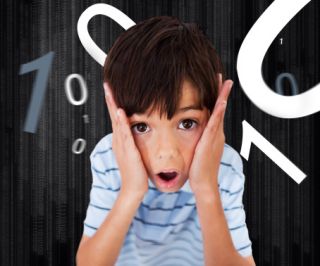Friends
Can Your Child's Friends Affect How Much He or She Learns?
Here's why it's good for your child to have smart friends.
Posted October 6, 2015

One of the basic tenants of real estate investing is that you want to own the smallest, most rundown house on the block, the theory being that the value of surrounding homes will inflate the value of your tiny home. The reverse is also true: the value of the most beautiful house on the block can regress to the mean of the shacks flanking it.
Now let's talk about your children. In terms of mathematics skills, is your child a mansion or a shack? (Note: You'll probably want to avoid sharing this assessment.) Now the next question is what happens when you pair your child with a mathematical mansion or shack - how are your child's math skills affected by friendships with kids who are better or worse at math than he/she is?
That was the question of a study by researchers from Arizona State University, Florida Atlantic University and the University of Jyvaskyla, Finland, recently published in the British Journal of Developmental Psychology. Basically, they studied 187 pairs of best friends. First they tested math skills in 3rd grade. Then they tested math skills again in 4th grade. Whose skills blasted off and whose took a nosedive?
If children followed the rules of real estate, you would expect the less-skilled friend to gain from the relationship at the expense of the more-skilled friend. In other words, the less-skilled friend should see an improvement in math skills, while the more-skilled friend should see a decline in skills (or at least a slower gain in skills).
This study found exactly half of that, writing that "greater initial levels of mathematical reasoning in higher achieving partners predicted greater increases in mathematical reasoning of lower achieving partners."
A child who is friends with a strong mathematician is likely to improve his or her own math skills. But the second, more handwringing, pearl-clutching possibility turns out to be a false fear: "There was no evidence that peer influence resulted in a lower achieving friend having a negative impact on the mathematical reasoning of their higher achieving partner," the paper writes.
A nudnik friend may cajole your brilliant angel into smoking cigarettes under the school bleachers. But he or she is unlikely to undermine your child's strong mathematical skills. If your child is the other actor in this scenario, consider doing everything in your power to pair your lovely little nudnik with a high-achieving friend - the greater the difference in math skills, the more the lower-achieving friend benefits.


